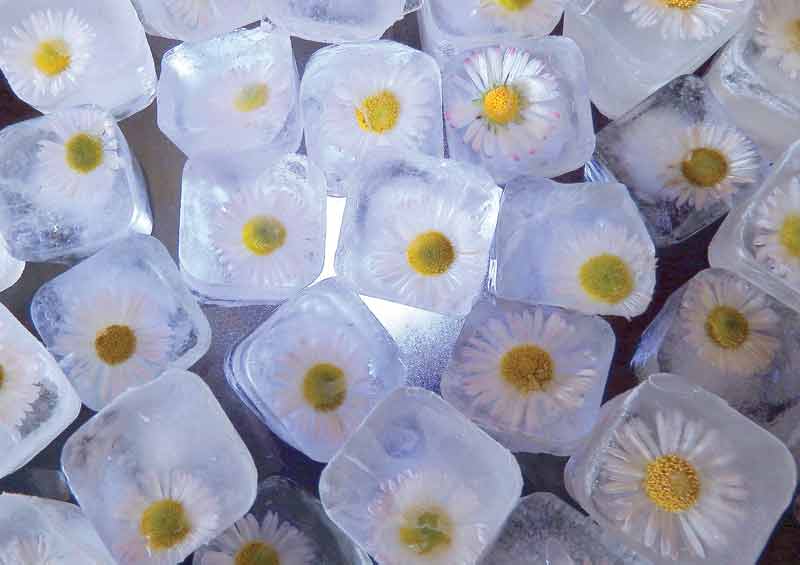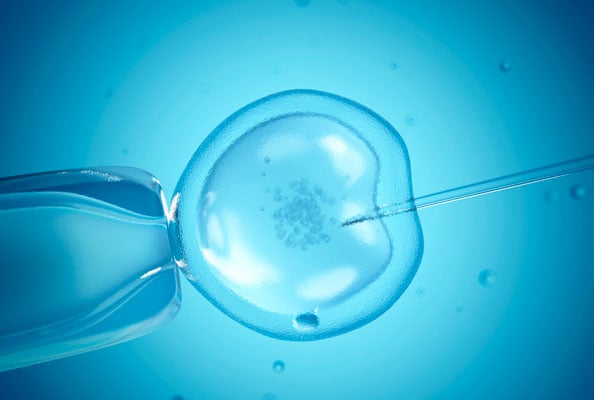Are you planning on starting a family sometime soon? Maybe you’re trying to conceive right now or thinking of putting off pregnancy for another year? Dr Bohaira El Geyoushi, fertility expert at Fakih IVF Clinic Dubai and brand spokesperson for Clearblue, talks us through the fertility facts you need to know in your 20s, 30s and 40s.
We’re used to scheduling our lives with absolute precision these days, timetabling the things we want when we want them, and fitting everything in has become a badge of success.
But when it comes to starting a family, the ‘on demand’ attitude doesn’t always work. Life expectancy might be getting longer, but the fact is a woman’s fertile window is just the same now as it was a century ago. It’s true that assisted reproduction techniques are helping more and more couples get pregnant later in life, but there is no denying that the biological clock is ticking all the time and age will always be a factor whatever method you choose.
The average age for first-time mothers in the US increased from 21 in 1970 to 26 in 2014, according to data released by the U.S. Centers for Disease Control and Prevention’s (CDC) National Center for Health Statistics. There are many valid reasons why people wait longer to have a child and the message shouldn’t be about encouraging people into pregnancy before they’re ready, rather increasing awareness about the impact of age on fertility so couples can make informed decisions when the time is right.
Read: Everything You Need To Know About Freezing Your Eggs In The UAE
Read: This Health Problem Is On The Rise In The UAE, Here’s How To Beat It
Understanding women and their eggs
Women are born with a limited number of eggs. This number differs from person to person based on various factors, and it’s at the highest at around between 2 to 5 million eggs in utero. This drops to around 1 to 2 million at birth and reaches about 300,000 to 500,000 at puberty. By the time a women reaches her 30th birthday she has an egg reserve of around 72,000 and this gradually decreases with time to become less than 1,000 at the menopause.
As we age it is not only the quantity of eggs that can present challenges, but also the quality, making it harder for the sperm to fertilise the eggs. There is an increase in chromosomal abnormalities, which leads to foetal abnormalities and an increase in miscarriage rates.
20s

From a biological perspective your 20s is the ideal time to get pregnant, when fertility is at its peak, but that still doesn’t mean it will happen immediately. Statistics suggest that the average woman between 20 and 24 years old has about a 20 per cent chance of getting pregnant each month. Lifestyle habits should be the main focus at this age and the number one piece of advice is to quit smoking. Nicotine has a toxic effect on cells, which impacts both the sperm and the eggs, and the same is true of passive smoking. For women it can affect how receptive the uterus is to the egg and for men, it can reduce sperm production, damage DNA and even affect the future reproductive health of their daughters.
Being overweight or underweight can also take its toll on fertility and there is evidence to suggest that too much alcohol and caffeine found in coffee, tea and soft drinks may be linked with lower fertility. Stress is another big factor and anyone who is trying to get pregnant should take steps to manage their stress levels regardless of age.
While pregnancy in your 20s might make sense physically, changes in society have meant more women are concentrating on building their careers at this stage, before taking the leap into parenthood. However, for anyone who may be suffering from fertility problems caused by conditions such as PCOS (Polycystic Ovary Syndrome) or premature ovarian failure (early onset menopause), this is an especially important time. Watch out for any fertility red flags, for example if a female family member underwent the menopause in their 20s or 30s, as early menopause means egg reserves have dwindled earlier than expected. We would advise the patient to start trying for a baby as soon as possible.
Similarly with PCOS, it can be more difficult to get pregnant and it is best not to delay things if you have the choice. Most women with PCOS have small cysts on their ovaries that represent un-developed and un-ruptured eggs. This can lead to hormone imbalances and early diagnosis and treatment not only helps to control the symptoms and prevent long-term problems, but it also enables women to discuss options for starting a family.
30s
It is becoming increasingly common for women to have their first child in their 30s, and in 2013 the first-time pregnancy rate for women in the US between 30 and 34 hit a record 29.5 per 1,000 births. While fertility does decrease at this age, the change begins gradually then accelerates much more quickly as you get closer to your 40th birthday.
This is the time to do everything you can to maximise your chances of conceiving naturally and we would usually suggest couples try to conceive for one year before seeking fertility treatment if it’s their first child, and up to two years with a second baby. It is important to get to know your body and understand your cycle as it’s estimated that nearly 50 per cent of couples could be trying to conceive at the wrong time.
There are a number of home methods for predicting ovulation, such as the calendar method, however your cycle can vary by up to seven days each month, which makes it harder to be exact. Basal Body Temperature involves taking your temperature daily as soon as you wake up, which can prove time consuming and it’s only been shown to predict the most fertile days in one third of cycles. Ovulation kits such as the Clearblue Digital Ovulation Test are proven to be much more accurate and effective. The test can predict ovulation from the first cycle of use and pinpoint your two most fertile days 12 to 24 hours in advance by analysing the hormone levels in your urine.
40s

There are plenty of examples in the media of women getting pregnant well into their 40s, but it doesn’t necessarily mean the path to conception was straightforward and at this age there are a few things to be aware of. The risk of abnormalities rises with age and, according to the Royal College of Obstetricians & Gynaecologists, women over 40 are considered to be at a higher risk of pregnancy complications.
Even with IVF the success rate falls to less than 5 per cent for women over 42 years of age, versus 31 per cent for women under 35. The risk of miscarriage in a woman between 35 to 39 years of age is 24 per cent, and doubles to 51 per cent between 40 to 44 and the risk of conditions such as Down’s Syndrome also increases.
It is best to be proactive and visit a fertility specialist immediately where they will do a variety of tests to try and establish any potential problems that may require treatment from the start. Tests include semen analysis for the male, a baseline ultrasound scan to check the ovaries, ovarian reserve and hormone tests and a tubal patency test to assess the health of the fallopian tubes. Providing there are no obvious issues patients would be advised to try and conceive naturally for three to six months, if no conception has occurred to seek specialist fertility advice earlier rather than later.
Even if a problem is identified, the answer may be something simple such as lifestyle changes or drugs to stimulate ovulation. If we believe the best course of action is assisted reproduction your doctor would advise on the next steps, which may include Intrauterine insemination (IUI) or IVF. For anyone undergoing IVF in their late 30s and above we would recommend screening the embryos for any abnormalities before embryo transfer.
Even if you fall pregnant naturally in your 40s you will be offered additional pre-nantal screening tests to assess your baby’s chance of developing more common conditions such as Down’s Syndrome. These includes an early blood test to screen the fetal cells in the mother’s blood. An ultrasound to check the fluid behind the neck of the fetus this is called a Nuchal scan. There are also biochemical blood tests and invasive tests for a more definitive results such as amniocentesis or CVS.
Images: Getty
Originally published in Good magazine












